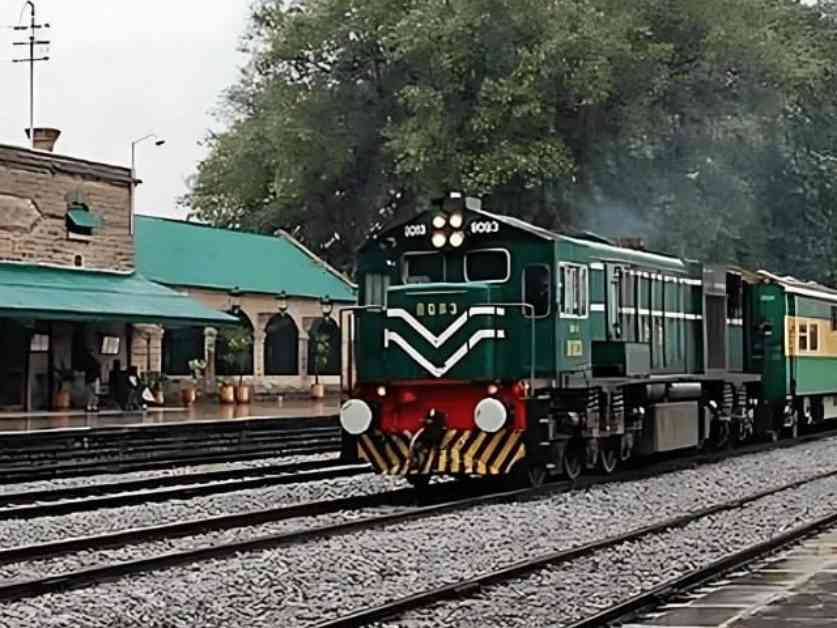Unidentified gunmen unleashed chaos on the Jaffar Express, a train journeying from Quetta to Peshawar, resulting in injuries to the driver and instilling fear among passengers. The incident unfolded on Monday morning as the train traversed the Gudalaar and Piru Koneri regions, a picturesque backdrop marred by violence.
Eyewitnesses and reports from Levies sources painted a grim picture of the situation, illustrating how the gunmen compelled the train to halt in the rugged terrain of Mach. Passengers found themselves at the mercy of the assailants, with gunshots echoing through the mountains as the train came to a standstill. The Railway Police, verifying the incident, disclosed that approximately 500 individuals were on board during the attack. While rumors of multiple injuries circulated, the full extent of the casualties remained shrouded in uncertainty pending further investigation.
In response to the crisis, the PR officer of the Railway DS announced the activation of emergency procedures at nearby medical facilities, with ambulances rushing from Sibi to provide aid. The treacherous surroundings of the Mach mountains prompted security forces to encircle the area, augmenting their presence with additional convoys to bolster the rescue mission. Reports hinted at a prelude to the attack, suggesting that explosives may have been used to sabotage the railway tracks before the gunmen struck, resulting in severe harm to the driver.
The assailants, maintaining a relentless barrage of gunfire, kept the hostages in a state of perpetual fear as authorities toiled to liberate the captives and guarantee the safety of the passengers. Against the backdrop of these harrowing events, Balochistan found itself grappling with a surge in militant activities, underscoring the volatile nature of the region.
As the dust settled on the assault, speculation swirled regarding the motives behind the attack. Despite the palpable tension gripping the area, no group had come forward to claim responsibility for the brazen act of violence. The implications of this incident reverberated far beyond the confines of the Jaffar Express, casting a long shadow over the communities it traversed.
Expert Insights on the Attack
In light of this egregious attack on the Jaffar Express, security analysts underscored the need for enhanced vigilance and preemptive measures to safeguard public transportation systems from similar threats. “Incidents like these serve as a stark reminder of the vulnerabilities inherent in our infrastructure,” remarked Dr. Sarah Khan, a renowned expert on counterterrorism. “It is imperative that we address the root causes of such violence to prevent the recurrence of such senseless acts.”
Community Response and Rebuilding Trust
The aftermath of the attack saw an outpouring of support from communities affected by the incident, as locals banded together to provide assistance and comfort to the traumatized passengers. Amidst the chaos and uncertainty, gestures of solidarity emerged, highlighting the resilience of individuals in the face of adversity. As the affected regions grappled with the aftermath, a sense of unity and resolve permeated the air, signaling a collective determination to overcome the challenges posed by such acts of aggression.
The assault on the Jaffar Express served as a stark reminder of the fragility of peace in conflict-ridden regions, underscoring the urgent need for concerted efforts to address the underlying grievances fueling such violence. As the authorities continued their investigation into the attack, the resilience and solidarity displayed by the affected communities stood as a beacon of hope in the midst of darkness. Only through unity and unwavering resolve could they begin to heal the wounds inflicted by this brazen act of terror.









